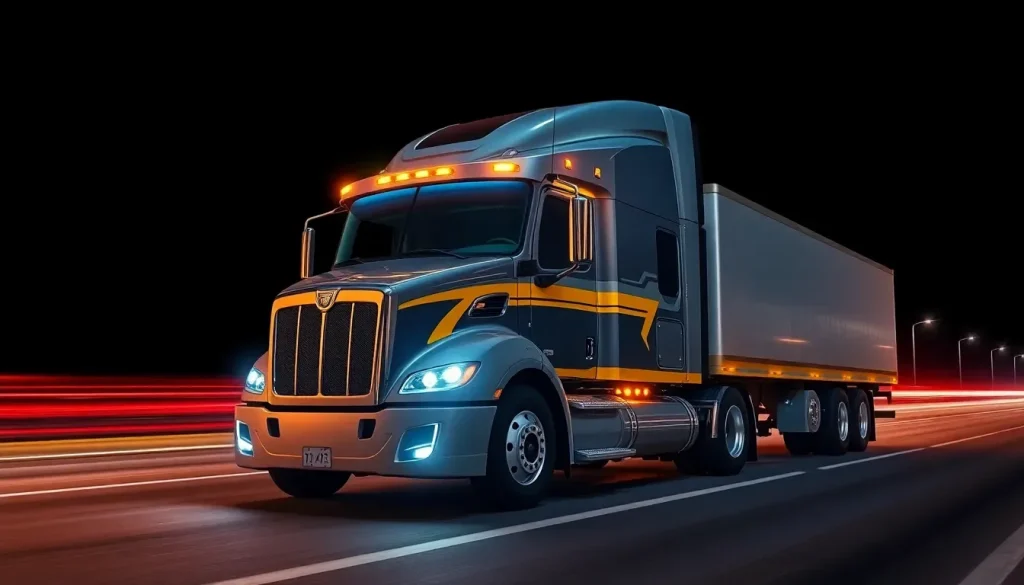Torc and Edge Case Join Forces to Enhance Autonomous Truck Safety

In a rapidly evolving landscape of autonomous technology, partnerships that enhance safety and operational efficiency are crucial. Torc Robotics, a leader in developing self-driving trucks, has recently embarked on a significant collaboration with Edge Case, a company specializing in safety-critical systems. This partnership aims to enhance the safety frameworks necessary for the commercial deployment of autonomous trucks, particularly in long-haul applications.
As the industry moves closer to the realization of fully autonomous commercial vehicles, initiatives like this are pivotal for addressing safety concerns and regulatory requirements. Let’s delve deeper into the details of this collaboration and what it means for the future of autonomous trucks.
Objectives of the Collaboration
This collaboration between Torc and Edge Case centers on creating a robust safety case, which is essential for the deployment of Level 4 autonomous trucks. The focus is on aligning Torc's safety case with established best practices from the Automated Vehicle Safety Consortium (AVSC) and guidance from the Open Autonomy Safety Case (OASC).
Some key objectives of the initiative include:
- Developing a streamlined and structured safety case.
- Facilitating independent assessments of the Driverless Safety Case Framework.
- Delivering detailed reports on evidence sufficiency.
- Conducting collaborative review sessions with engineering and operations teams at Torc.
Through this collaborative framework, Torc aims to ensure that its autonomous trucking solutions are not only innovative but also meet the rigorous safety standards expected in the industry.
Importance of Safety in Autonomous Trucking
Safety is a paramount concern in the development and deployment of autonomous vehicles. The trucking industry, in particular, faces unique challenges, including:
- Regulatory scrutiny and compliance with safety standards.
- Public perception and acceptance of autonomous technology.
- Operational risks associated with long-haul transportation.
Torc's initiative to work with Edge Case underscores the importance of building a comprehensive safety program that addresses these concerns. A robust safety case not only mitigates risks but also fosters trust among stakeholders, including regulators, fleet operators, and the general public.
Leadership Perspectives on the Initiative
Statements from leadership at both companies highlight the significance of this partnership. Jerry Lopez, Senior Director of Safety Assurance at Torc, emphasized that “Edge Case brings world-class expertise in building rigorous and comprehensive safety programs.” This sentiment reflects the confidence that Torc has in Edge Case's capabilities, particularly in navigating complex safety landscapes.
Nathan Parker, CEO of Edge Case, stated, “This partnership with Torc represents a pivotal step forward in advancing autonomous trucking safety.” His remarks underscore the collaborative effort to ensure that Torc’s safety case is not only rigorous but also ready for real-world deployment, aligning with the industry's moving target toward production readiness.
Technological Contributions
Edge Case specializes in developing frontier technologies and safety-critical systems. The collaboration will leverage advanced methodologies and tools designed to enhance the safety of autonomous systems. This includes:
- Data-driven assessments to evaluate safety cases.
- Algorithms designed to predict and mitigate risks in autonomous operations.
- Development of transparent reporting frameworks for stakeholders.
As technology continues to evolve, the integration of such advanced safety measures will be critical in ensuring that autonomous trucks can operate effectively and safely in real-world conditions.
Torc's Commitment to Autonomous Solutions
Torc Robotics is committed to deploying fully driverless commercial autonomous trucks for long-haul operations by 2027. This ambitious timeline places significant pressure on the company to ensure that all safety measures are in place and operational before they can hit the road without a human driver.
Key milestones for Torc include:
- Completion of the Driverless Safety Case Framework.
- Collaboration with Edge Case to validate safety processes.
- Engagement with regulatory bodies to ensure compliance.
Through these efforts, Torc aims to lead the way in autonomous trucking while prioritizing safety and trustworthiness in their operations.
Impact on the Industry
This partnership between Torc and Edge Case is likely to have far-reaching implications for the autonomous trucking industry. As companies align their safety frameworks with best practices, the entire sector can benefit from improved safety standards and operational efficiencies.
Moreover, as more companies follow suit in prioritizing safety through collaboration, the industry can expect:
- Increased regulatory support for autonomous technology.
- Greater public acceptance and trust in self-driving vehicles.
- A more structured approach to safety that can be replicated across the industry.
Such advancements will not only facilitate the growth of autonomous trucking but also enhance the overall safety of the transportation sector.
Conclusion: Looking Toward the Future
The collaboration between Torc and Edge Case marks a significant step in the journey toward safer autonomous trucking. By focusing on creating a rigorous safety case, these companies are setting a precedent for others in the industry to follow. As they work together to ensure compliance with safety standards and operational readiness, the future of autonomous trucks looks promising.
To gain further insights into Torc Robotics' progress and the impact of their technology, check out this informative video:
As developments continue to unfold, it will be essential for stakeholders to stay informed and engaged in the conversation surrounding autonomous vehicle safety and innovation.




Leave a Reply